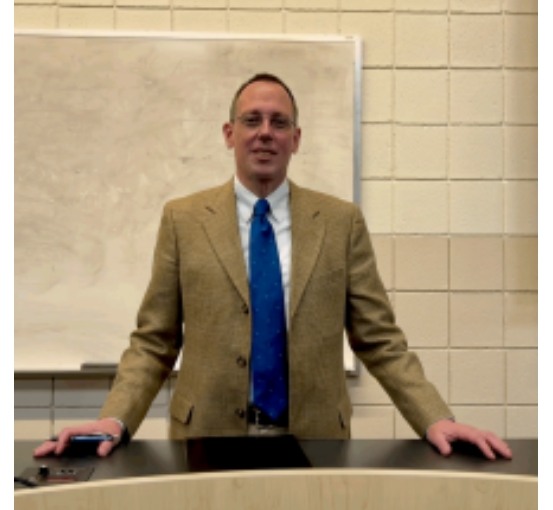On Wednesday night, the Institute for Saint Anselm Studies hosted Professor Joshua Hochschild, who visits the Hilltop from Mount Saint Mary’s University to deliver the 2024 Fides et Ratio lecture, titled “Learning How to Think About God: Divine Simplicity and the Acquisition of Theological Concepts.” Speaking to an engaged audience of students, monks, and community members alike, Hochschild explored the profound concept of divine simplicity and the unique nature of God as pure actuality.
In his lively presentation, Hochschild passionately argued that God is more than merely “some sort of thing,” but is instead “beyond all kinds.” Unlike created beings, God has no parts, divisions, or even a separate divine nature– He is divine nature itself. Furthermore, he explained, the Christian trinitarian perspective of God contributes to his unique simplicity; He is all things, while also being greater than anything we can conceive. God, he continued, does not exist in parts or potentiality, but in pure actuality, the basis for all other divine attributes. As “thought thinking itself,” to echo Aristotle, God embodies eternal and present existence without needing to “come to be” from anything else.
Our understanding of God, Hochschild elaborated, relies on indirect learning and accepting our intellectual limitations. The various proofs of God’s existence, he says, demonstrates the existence of an ultimate cause– God– a truth that urges us to form and refine our theological concepts on a perpetual basis, discovering God through what we can perceive. Through philosophical reasoning and theological reflection, Hochschild encouraged listeners to grapple with the nature of God, not as a knowable or understandable entity, but as a mystery beyond our comprehension, grounding our beliefs in a divine actuality that transcends our human categorization.
In closing, Professor Hochschild left us with the reminder that “God is eternal, active, and alive,” once more inviting us to approach our understanding of the divine with humility and wonder, continually seeking to know God. We aim not to fully comprehend His works, but to catch a glimpse, however small, of the profound mystery of God’s simple, pure actuality.


